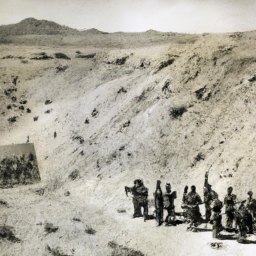The Soviet Union's involvement in the Afghan War in the 1980s is often described as a proxy war due to the various interests and actors at play. While the Soviet Union initially responded to the Afghan government's request for assistance, the conflict quickly evolved into a larger geopolitical struggle with far-reaching consequences.
The mujahideen, a group of Afghan rebels fighting against the Soviet-backed government, received support from various external actors, including the United States. This support ranged from financial aid to military training, as the United States saw an opportunity to weaken the Soviet Union's influence in the region.
The Soviet Union's decision to intervene in Afghanistan was driven by a desire to maintain a friendly government in the region and prevent the spread of Islamic fundamentalism. However, their presence in Afghanistan quickly escalated into a full-fledged conflict, with devastating consequences for both the Afghan people and the Soviet military.
The combatants in the Afghan War represented a myriad of interests, from regional powers seeking to assert their influence to global superpowers vying for control. The conflict became a battleground for competing ideologies and geopolitical ambitions, with the Afghan people caught in the crossfire.
Despite the United States' support for the mujahideen, they did not directly engage in battle with Soviet forces. Instead, they provided indirect support through covert operations and assistance to the rebels, further adding to the complexity of the conflict.
The consequences of the Soviet-Afghan War were profound and far-reaching. The Afghan people endured years of violence and instability, while the Soviet Union suffered significant losses both militarily and economically. The conflict also had ripple effects across the region, fueling the rise of Islamic extremism and shaping the geopolitical landscape for years to come.
The Soviet-Afghan War was not just a regional conflict but a global proxy war with implications for international relations and national security. The Cold War rivalry between the Soviet Union and the United States played out on Afghan soil, highlighting the complex interplay of interests and alliances in the pursuit of power and influence.
